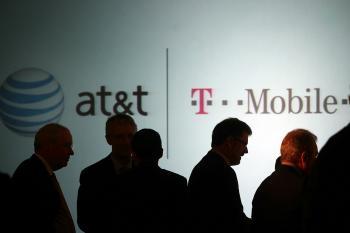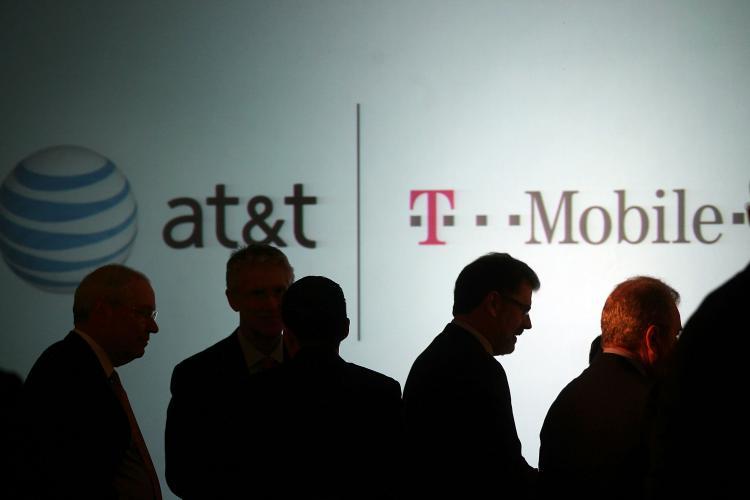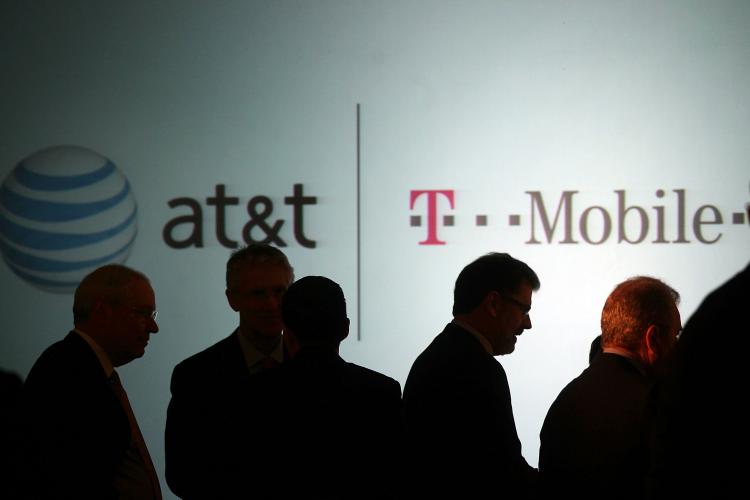AT&T, T-Mobile Merger No Slam Dunk
Before T-Mobile customers start browsing what apps they would download to their new Apple iPhones with the recently announced AT&T merger, experts say that the deal is anything but assured.

Executives at AT&T attend a news conference where it was announced that AT&T Inc. will be buying its wireless rival T-Mobile USA from Deutsche Telekom AG for $39 billion in cash and stock on March 21, 2011 in New York City. Spencer Platt/Getty Images
|Updated:





